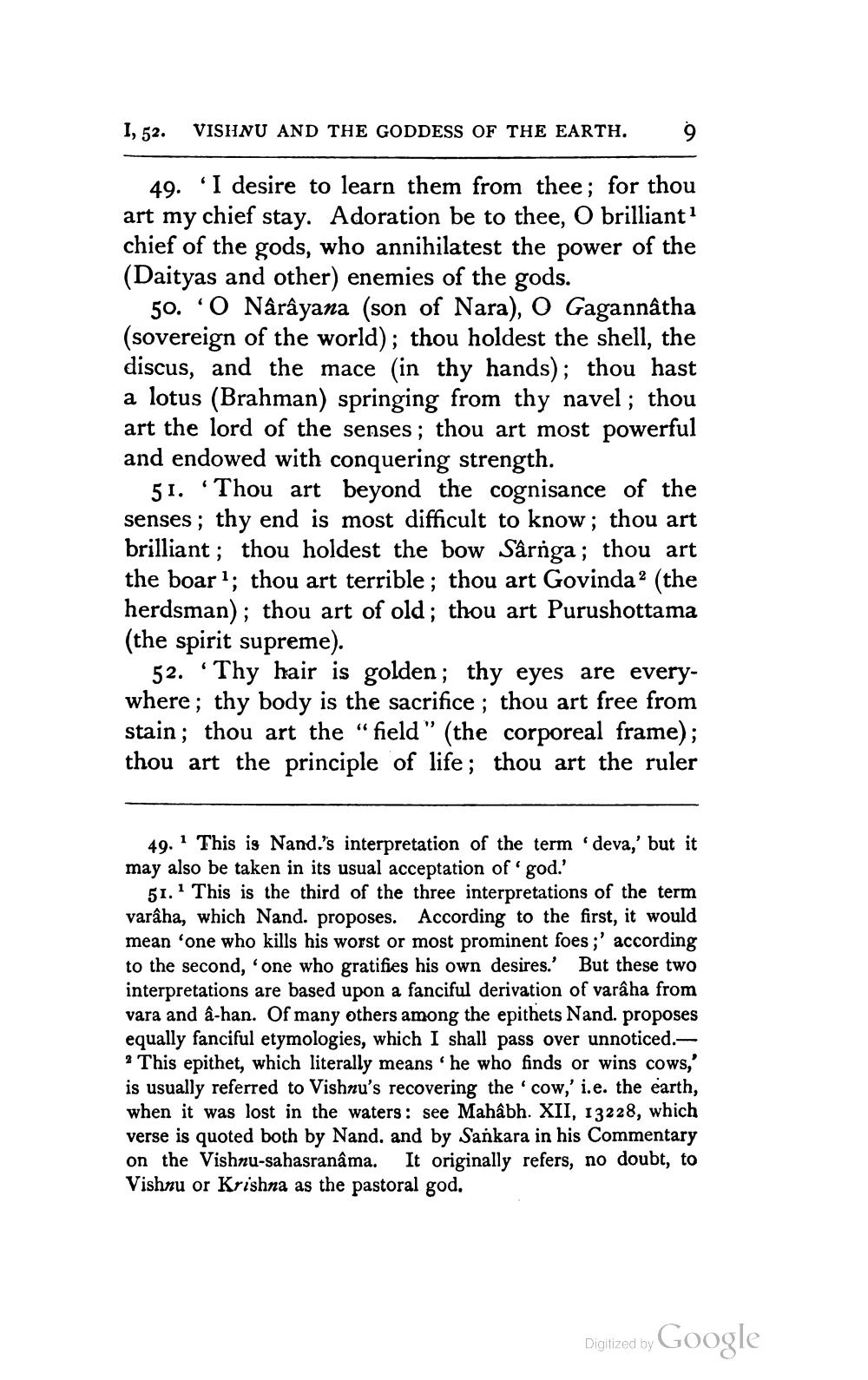________________
1, 52. VISHNU AND THE GODDESS OF THE EARTH.
9
49. 'I desire to learn them from thee; for thou art my chief stay. Adoration be to thee, O brillianti chief of the gods, who annihilatest the power of the (Daityas and other) enemies of the gods.
50. 'O Nârâyana (son of Nara), O Gagannatha (sovereign of the world); thou holdest the shell, the discus, and the mace (in thy hands); thou hast a lotus (Brahman) springing from thy navel ; thou art the lord of the senses; thou art most powerful and endowed with conquering strength.
51. “Thou art beyond the cognisance of the senses; thy end is most difficult to know; thou art brilliant; thou holdest the bow Sârnga; thou art the boar l; thou art terrible; thou art Govinda? (the herdsman); thou art of old ; thou art Purushottama (the spirit supreme).
52. “Thy hair is golden; thy eyes are everywhere; thy body is the sacrifice; thou art free from stain; thou art the "field" (the corporeal frame); thou art the principle of life; thou art the ruler
49.1 This is Nand.'s interpretation of the term 'deva,' but it may also be taken in its usual acceptation of god.'
51.1 This is the third of the three interpretations of the term varâha, which Nand. proposes. According to the first, it would mean 'one who kills his worst or most prominent foes ;' according to the second, one who gratifies his own desires.' But these two interpretations are based upon a fanciful derivation of varâha from vara and â-han. Of many others among the epithets Nand. proposes equally fanciful etymologies, which I shall pass over unnoticed. 2 This epithet, which literally means he who finds or wins cows,' is usually referred to Vishnu's recovering the 'cow,' i.e. the earth, when it was lost in the waters: see Mahâbh. XII, 13228, which verse is quoted both by Nand, and by Sankara in his Commentary on the Vishnu-sahasranama. It originally refers, no doubt, to Vishnu or Krishna as the pastoral god.
Digitized by Google




